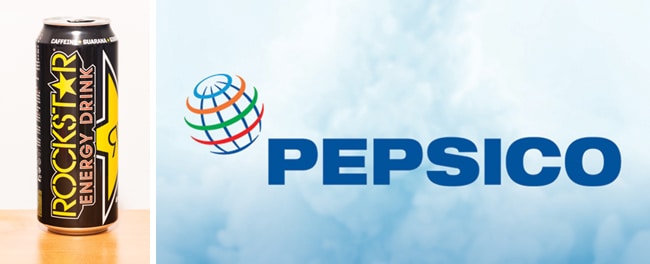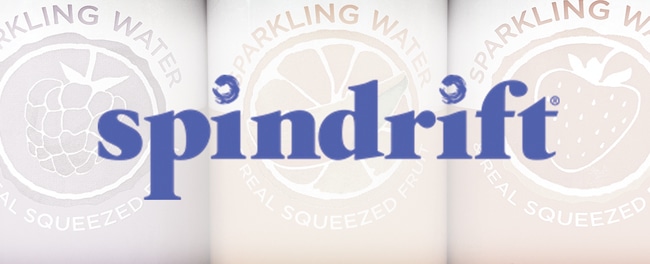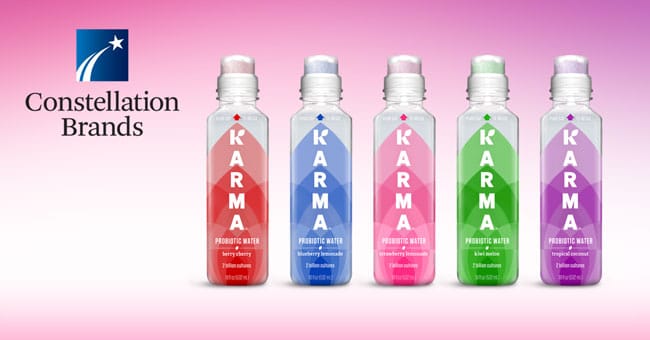Bevscape: The Latest Beverage Brand News
PepsiCo Acquires Rockstar Energy for $3.85 Billion
On March 11, PepsiCo announced an agreement to acquire energy drink brand Rockstar for $3.85 billion, a move that put the food and beverage giant in position to compete with its rivals head-on for dominance in the rapidly growing energy set.
The deal was Pepsi’s largest since its $3.2 billion acquisition of SodaStream International in 2018. As part of the purchase agreement, Pepsi will contribute $700 million in payments related to future tax benefits associated with the transaction, with 15 year terms. The transaction is expected to close in the first half of 2020.
Las Vegas-based Rockstar, founded in 2001 by Russ Weiner, helped pioneer the nascent U.S. energy drink market, introducing the first product in a 16 oz. can. The company’s relationship with PepsiCo goes back over a decade, beginning when the energy drink maker left its then-current distribution partner Coca-Cola to sign a 10-year distribution agreement with Pepsi in February 2009.
Within Pepsi’s current product portfolio, Rockstar joins a limited range of energy beverages housed under the Mountain Dew brand. Through its partnership with Starbucks Coffee, Pepsi also distributes coffee energy products such as Double Shot and Triple Shot. While not defined as strictly “energy” products, other brands like sparkling water Bubly and Gatorade (Bolt24) have integrated caffeine as an optional ingredient in their offerings.
In a report on the transaction, analysts with Cowen and Company wrote that they “continue to be encouraged by PEP’s approach to the energy category,” calling the deal a “welcome expansion” of the Pepsi-Rockstar partnership that provides a “solid platform” to build upon. However, the report noted the company will first need to reverse negative scanner trends for Rockstar and follow through on its stated commitment to increase marketing spend for its energy products.
Elsewhere, RBC Capital Markets analyst Nik Modi noted that the deal notably removes a stipulation in Rockstar’s previous agreement with Pepsi preventing the latter from working with any non-Rockstar energy products, thus allowing it to become “more aggressive” in the category.
Spindrift Raises $29.8M in Funding Round
Premium sparkling water maker Spindrift has raised $29.8 million in a new funding round, its largest single round to date, according to a filing with the U.S. Securities and Exchange Commission (SEC) in early March.
The new round brings the Massachusetts-based company’s total financing to at least $70 million and is the first new funding the brand has received since a $20 million Series B round led by VMG Partners in 2018. Other previous investors in the brand include Prolog Ventures, KarpReilly, RiverPark Ventures and Almanac Insights.
The financing arrived during a period of sustained growth for Spindrift. According to market research firm IRI, the brand reported a 127.5% increase in retail dollar sales to $37.4 million for the 52-week period ending December 19, 2019, making it one of the largest startup brands in the category. The market for sparkling water grew 11.3% to $3.2 billion in retail dollar sales in the same period, according to IRI, and is led by established players in the category such as LaCroix, Sparkling Ice and Nestlé, as well as fast rising entrants from strategics such as PepsiCo’s Bubly.
Humm Announces Launch of Zero Sugar Kombucha Line
Sugar is an essential ingredient in brewing kombucha, but that doesn’t mean consumers have to drink it.
That’s the proposition behind Humm Zero, the new sugar-free line from the Oregon-based kombucha brand that’s set to launch in select markets and on Amazon in April. The product will be sold in 11 oz. single-serve cans ($2.99 SRP) and 4-packs ($9.99) in four flavors: Peach Tea, Blood Orange, Ginger Lemonade and Raspberry Lemonade.
There’s still no way to make kombucha without using sugar, which acts as food for the yeast culture and causes the tea base to ferment. For all of its products, Humm allows its base brew to ferment until all the sugar has been consumed. Those brews are then sweetened with organic fruits and juices, reintroducing sugars which the active yeast can feed on and turn into alcohol, thus requiring the product to remain refrigerated. The new line simply takes that same base non-alcoholic kombucha and adds plant-based sweeteners — including monk fruit and allulose, among others — and organic flavors instead.
The result is a kombucha that has 10 calories and no sugar, but that is also not from concentrate and that is shelf-stable without pasteurization as well. Though it has been present in Humm’s kombucha for years, Humm Zero will additionally feature the brand’s first on-package callout for 33 mcg of added vitamin B12.
Humm Zero will initially launch on Amazon and at retail in six markets: Los Angeles, San Diego, Seattle, Baltimore/Washington D.C., Denver and Portland, Oregon. Retail partners include Giant Landover, Safeway, Albertsons, Pavilions, Vons, Haggen and New Seasons.
Danek noted that, in contrast to the larger category, Humm has been a mass retail brand from the beginning, picking up distribution in stores like Walmart, Costco and Target long before entering Whole Foods. Creating a product that addresses consumers’ desire for less sugar is an extension of that mainstream philosophy, Danek said. The company’s prior innovations — such as its reduced sugar SKUs (5 grams) and 12 oz. aluminum cans — have also helped position it to expand within the fast-growing convenience and MULO channels, the latter of which represented a 70% share of the kombucha category in 2019 according to SPINS.
“It’s such a natural progression for the brand to go outside the box and to think about what’s happening in the whole world versus just in our own little natural category,” Danek said. “And therefore creating a product that addresses big things in the world and all the consumers, versus just the natural consumer or just the kombucha consumer, it’s such a natural progression. It’s another extension of how we express ourselves.”
Constellation Brands Invests in Karma Wellness Water
Constellation Brands announced in February the acquisition of a minority ownership stake in Karma Culture LLC, the makers of Karma Wellness Water. The deal marks the beer and spirits giant’s first investment in a non-alcoholic beverage brand through its Constellation Ventures arm. Terms of the deal were not disclosed.
Founded in 2011, Karma markets a line of waters that feature a custom push cap which holds a flavor powder containing functional ingredients including vitamins and probiotics. By keeping the additives separate until consumption, the beverage remains shelf stable for up to 18 months until purchased and mixed by the consumer. In addition to its beverage arm, Karma also operates a separate B2B operation licensing and selling the patented cap technology.
The investment, which was announced eight months after the transaction closed in July, comes as Karma releases new packaging for its vitamin and probiotic beverage lines.
The revamped products will be supported by a new consumer marketing campaign featuring the slogan “Believe in Karma.” The campaign, which was developed with Constellation and creative agency High Wide & Handsome, will include digital, social media and PR efforts. Karma CEO CJ Rapp noted that the campaign will seek to educate consumers on “the benefits of the cap technology.”
In addition to marketing, Rapp said the Constellation partnership will offer Karma full access to the conglomerate’s infrastructure, including the company’s strategy, marketing and sales departments. However, he said, “the responsibility for the brand still rests on Karma, we are not integrated into the Constellation system.”
The Constellation partnership will give Karma access to the company’s DSD network to expand its retail footprint and the brand will continue to focus on mainstream retail outlets in the convenience, grocery, drug and mass channels. The brand will also add food service accounts through a partnership with Compass that is currently in the “early stages” of a national rollout.
In addition to the beverage line, Constellation will also work with Karma to grow its B2B push cap business. Karma partnered with manufacturer Aptar to produce the caps and Rapp said the company sees strong “medical field potential,” seeking to partner with pharmaceutical companies. As well, Karma also supplies its caps to other beverage brands, including hangover recovery drink Last Call.


Receive your free magazine!
Join thousands of other food and beverage professionals who utilize BevNET Magazine to stay up-to-date on current trends and news within the food and beverage world.
Receive your free copy of the magazine 6x per year in digital or print and utilize insights on consumer behavior, brand growth, category volume, and trend forecasting.
Subscribe


